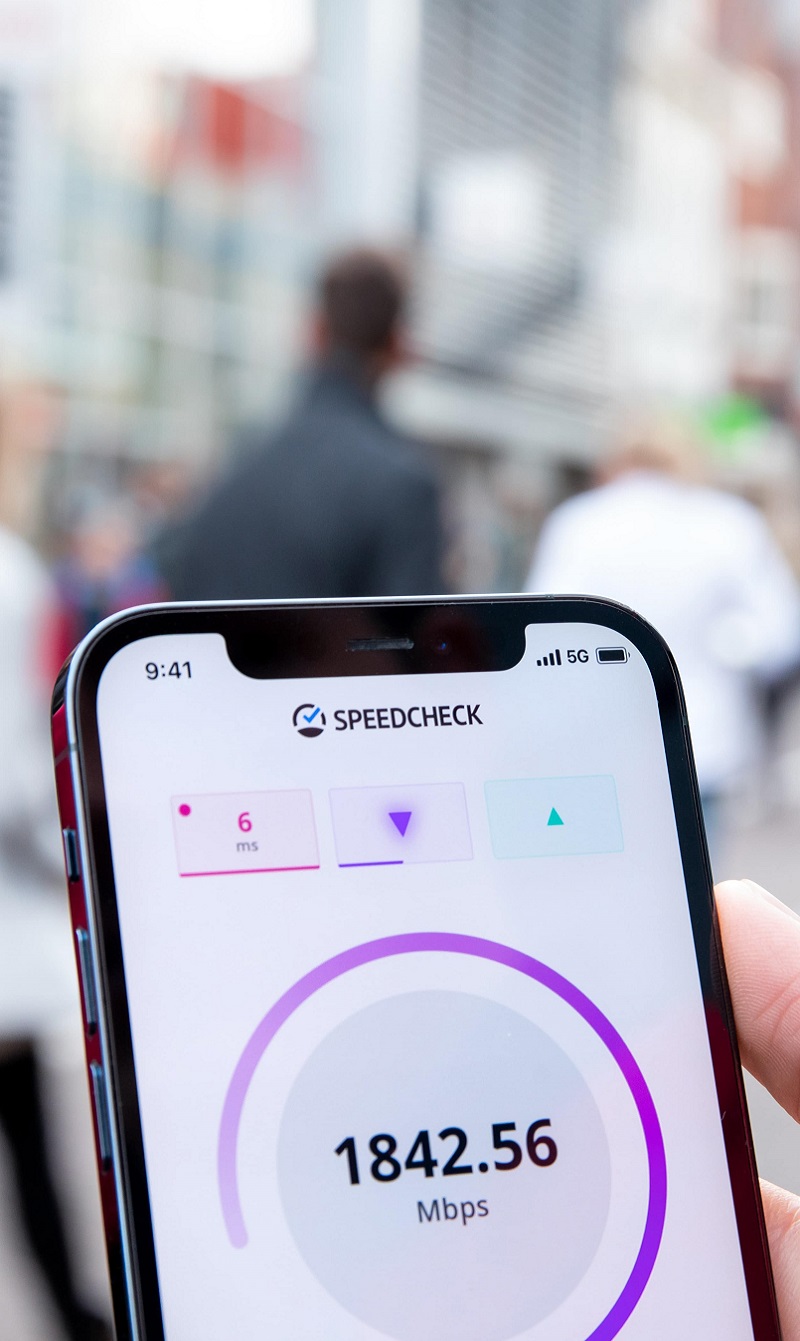5G, the Game Changer
Known as the game changer, experts say that 5G will dramatically improve network connection by eliminating noise and disruption, offering users high speed connectivity with added stability and security.
As you download your favourite Netflix show, does the speed frustrate you, making you wish it was faster? Perhaps the thought of 5G offers you a glimmer of hope. 5G, also known as fifth generation mobile internet connectivity, provides faster data download and better, as well as more stable connections plus a wider coverage. In other words, speed. According to Techradar, the birth of 5G came about through the use of extensive research and the latest network technology. Within this network, a high amount of data can be supported in order to create a more connected and smarter world for users.
5G Around the World
Expected to be launched around the world in 2020, 5G is already in use in some parts of the world and the goal is for it to work concurrently with 3G and 4G ensuring users are constantly connected as well as present online. The frontrunner to launch the 5G network globally was Verizon from the United States. Launched in April 2019, certain cities in Chicago have access and only two types of mobile devices can be used with the 5G network at the moment. However, the network connection wasn’t at par in every location.
Leading the way in Asia is China with its 5G networks. According to a recent report by Deloitte, Asian countries like China, Japan and South Korea, are outspending the United States in building and investing in 5G infrastructure. Altogether, China has spent USD24 billion on wireless communications infrastructure in 350,000 new sites since 2015, according to Asian Correspondent. This is in stark contrast to the United States, that built fewer than 20,000 sites. 5G networks would be beneficial especially for cars that are reliant on the 5G networks in China.
However, SDX Central says, though 5G is set to dominate the mobile network industry, it won’t fully replace LTE (long term evolution) now. To get the increased speed, 5G networks will work in a high frequency band of a wireless spectrum, within 28GHz (gigahertz) and 60 GHz. Also known as the millimeter wave spectrum, this range will include unlicensed frequencies such as 3.5GHz to the list of new frequencies for mobile use, ensuring a range of bandwidth available for the masses.
Reliability, Flexibility and Improved Battery Life
‘Reliability is what is required these days in a mobile network, that’s why there’s the market for 5G. It’s going to finally be the network that provides the dependability. 4G was all about smart phones and 5G is the network for all the things bringing for the first time complete and instant delivered reliability’, said Ulf Ewaldsson, CTO of Ericsson, in Network World.
Due to this reliability, 5G networks would also ensure that there would be less or no dropped calls, which would have a positive impact especially in the area of digital health and automotives. Another benefit of the 5G would be less time charging your devices. ‘Ultra-low 5G latency may crucially contribute to mobile phones expanding their endurance between charges from one or two days to a full month’, said Lowell McAdam, CEO of Verizon.
How 5G will Change Enterprise Businesses
The introduction of 5G will not only revolutionise the way we conduct day-to-day business, but it’ll also change the interaction between man and machine and how much we store, use and benefit from the data that is collected.
The process of data collection is vital for smart robots to analyse, calculate and execute specific tasks efficiently. Chunks of large data are then stored on cloud systems which eliminates the use of hardware as the industry transitions itself to software. This saves tons of space as companies digitises its operations.
Nokia President of Enterprise and CSO, Kathrin Buvac, recently shared her insights during a Bloomberg panel at the Mobile World Congress in Barcelona, in February 2019. Kathrin alongside leaders of the telco industry, briefed the audience about the opportunities 5G will create in Europe and around the world.
‘We’ve been talking about it for a very long time and now the opportunity is already here. 5G will enable the industrial revolution, so it’s clear that 5G has to be or will be a lot more than mobility services,’ said Kathrin.
Kathrin added that with 5G in place, the Internet of Things (Iot) which is the key element in the Fourth Industrial Revolution (4IR), will enable seamless integration of operation processes and in various industries such as manufacturing and mining. ‘I believe these productivity gains that we’ve spoken about are real. Operation efficiencies, process automation, all the way to dark factory operations to full autonomy. That is really what’s coming.’
The Promising Future of 5G
Myanmar is a perfect example. Before 2018, the country’s mobile network capability wasn’t at par. Thanks to Telenor, Myanmar’s 4G service has been phenomenal. The Nation mentioned that the Norwegian company played a critical role in bringing real 4G speed to the mass market in Myanmar and provided mobile connectivity to more than 92 per cent of the population. Telenor now seeks to improve the country’s network capability by bringing in 5G technology.
With 4G providing the foundations for 5G implementation, many countries are looking to 5G for better rural connectivity, which will benefit communities, the economy and create more business opportunities. The United States, Germany and Japan are just some of the leading countries that have taken positive strides in building infrastructures necessary for making 5G possible.
Also, South Korea has become one of the Asian countries to embrace 5G technology on a nationwide scale during the first quarter of 2019. In a bold move that pushes the boundaries of technology further into the 4IR, the Koreans are leading in terms of user experience of 5G. However, The Japan Times cited that among the notable power players, which are China and the United States, the race to 5G has gotten intense especially with America’s sanctions on Chinese telco giant, Huawei.
Main photo by rawpixel from Pixabay


